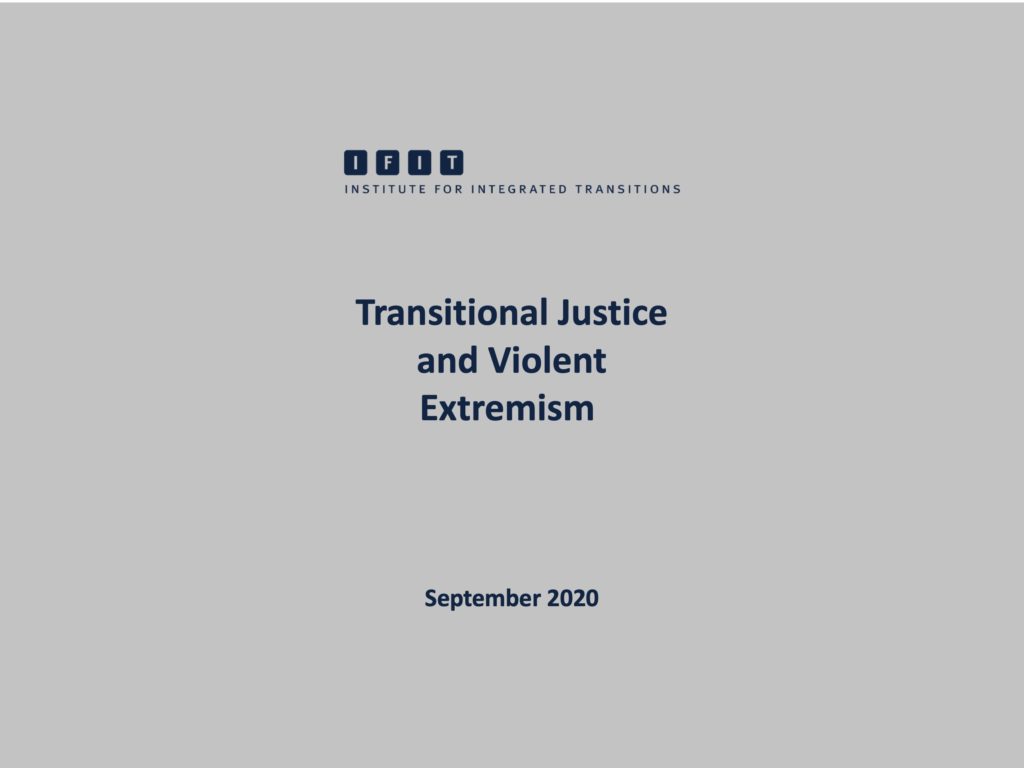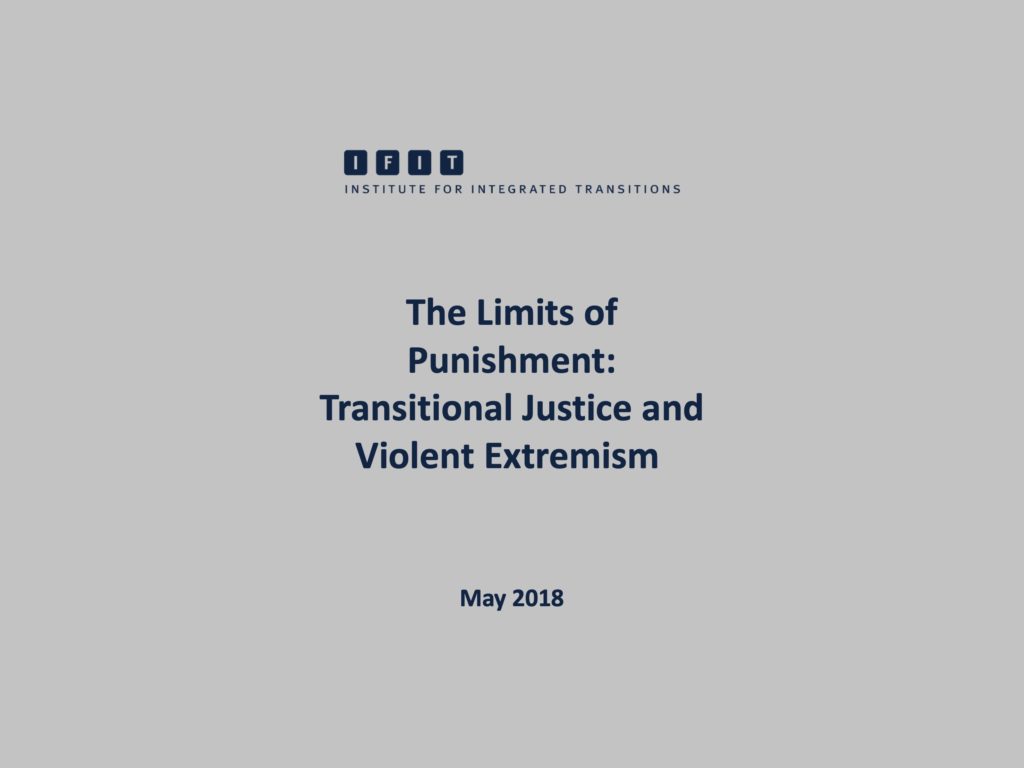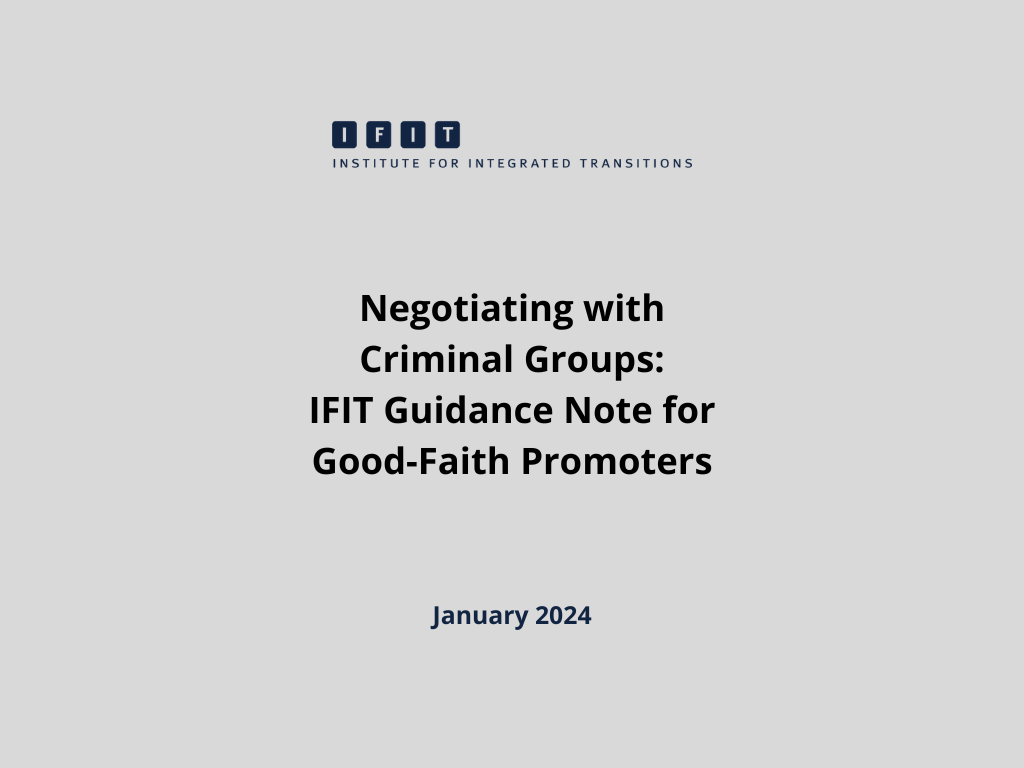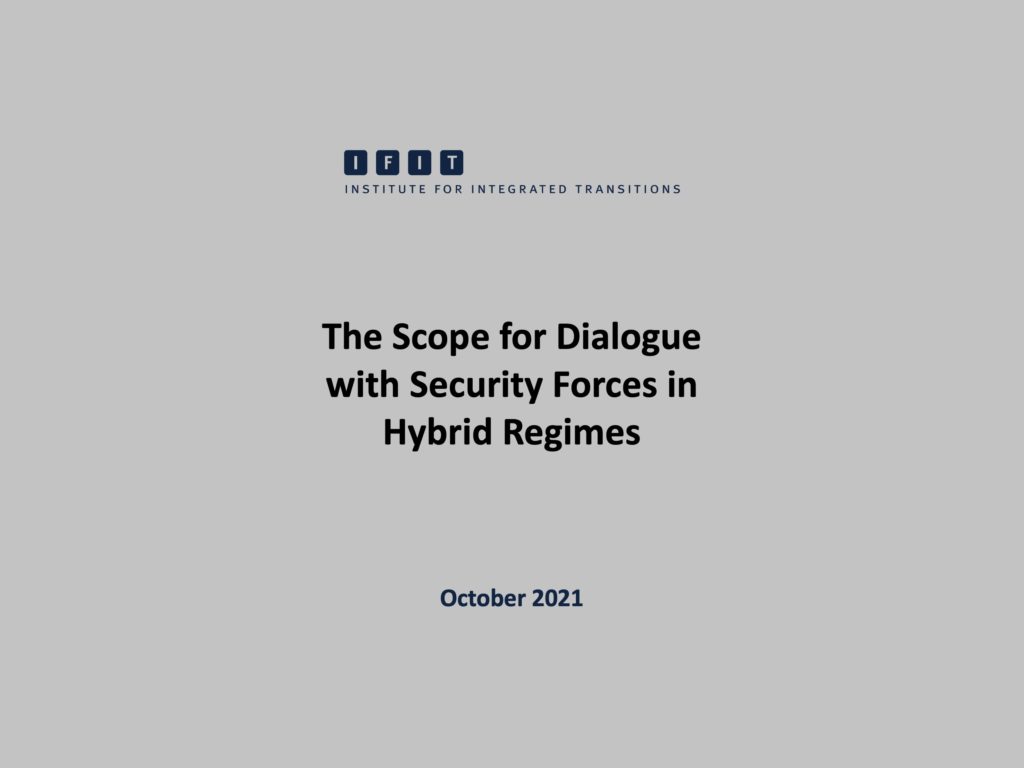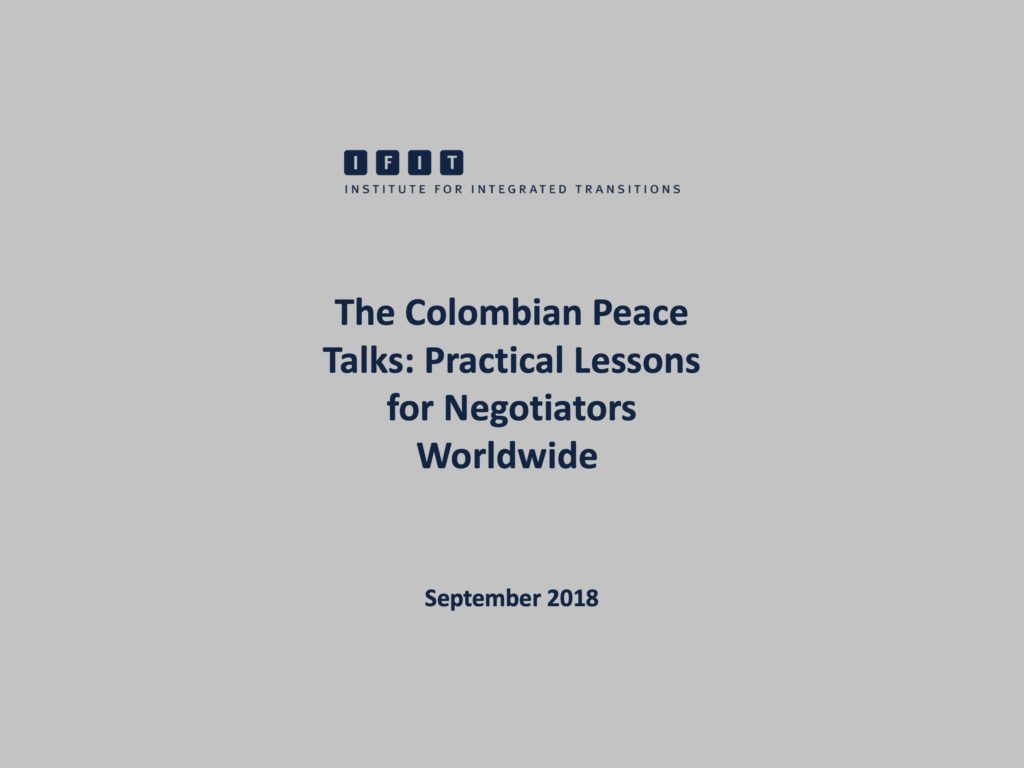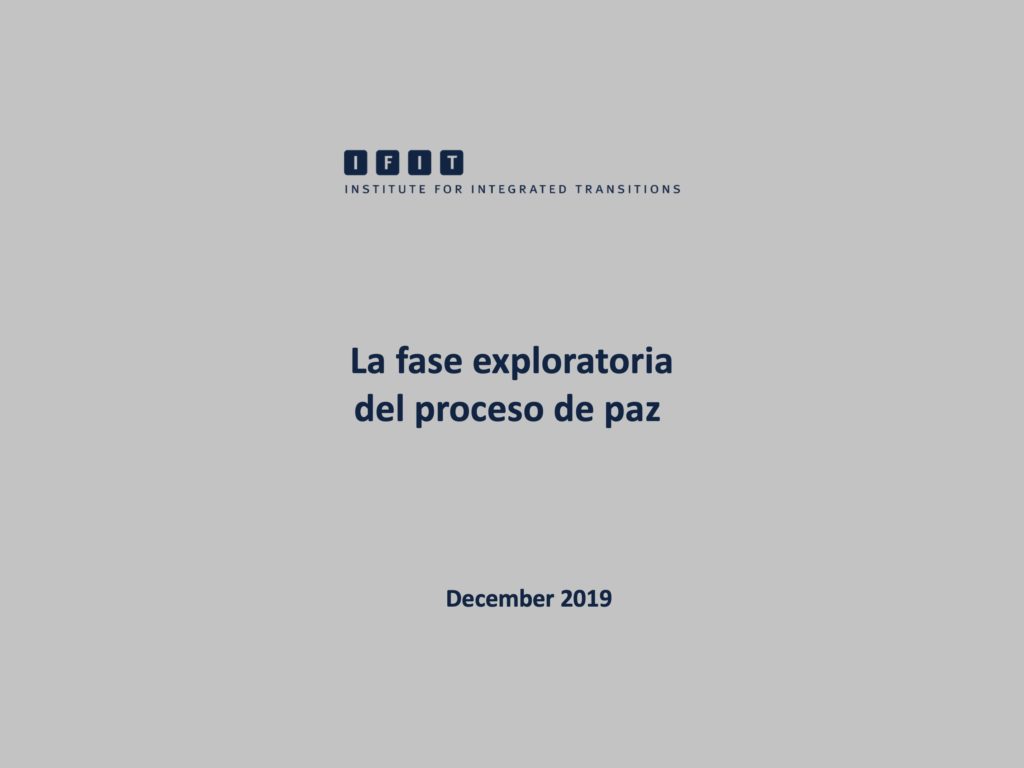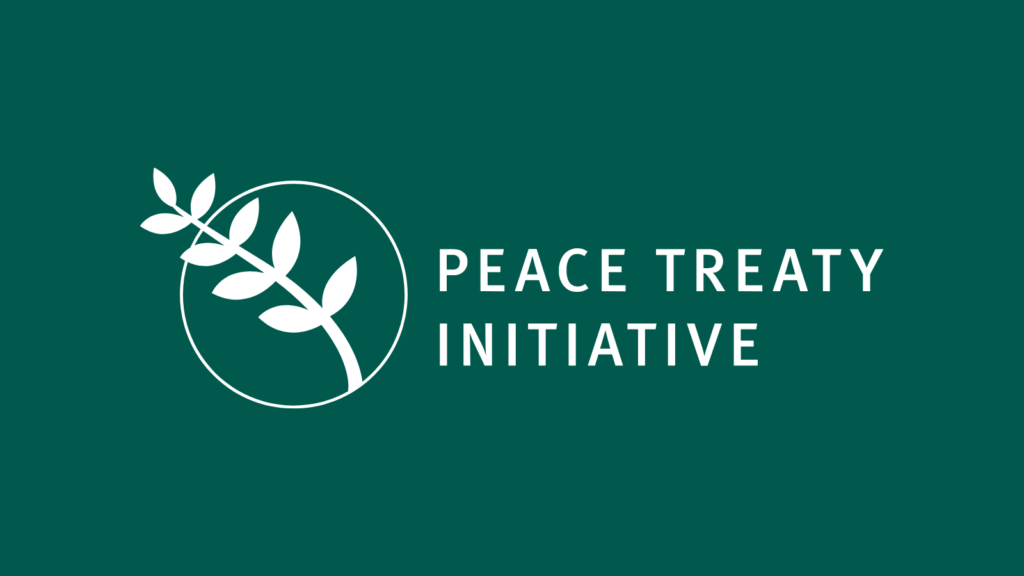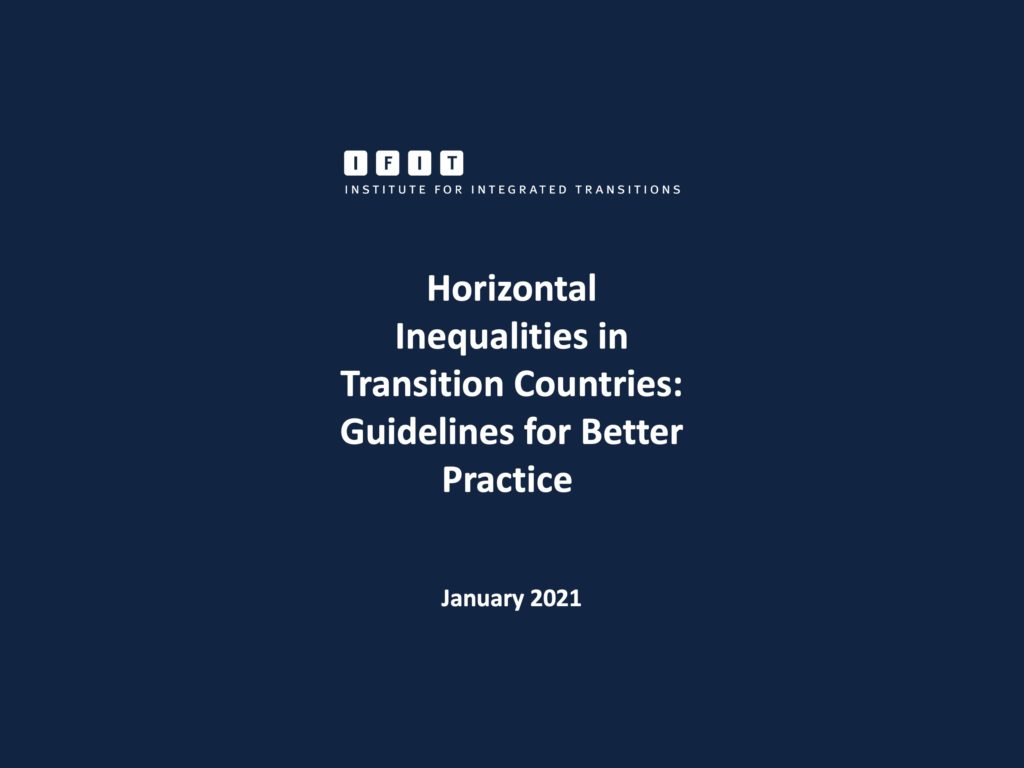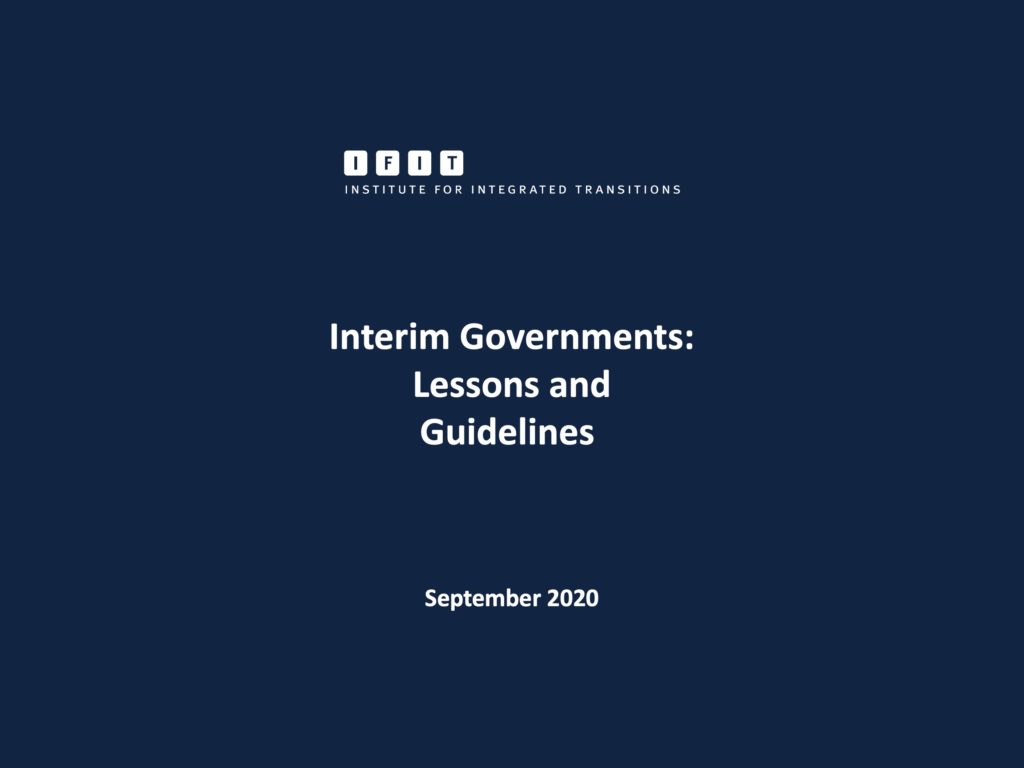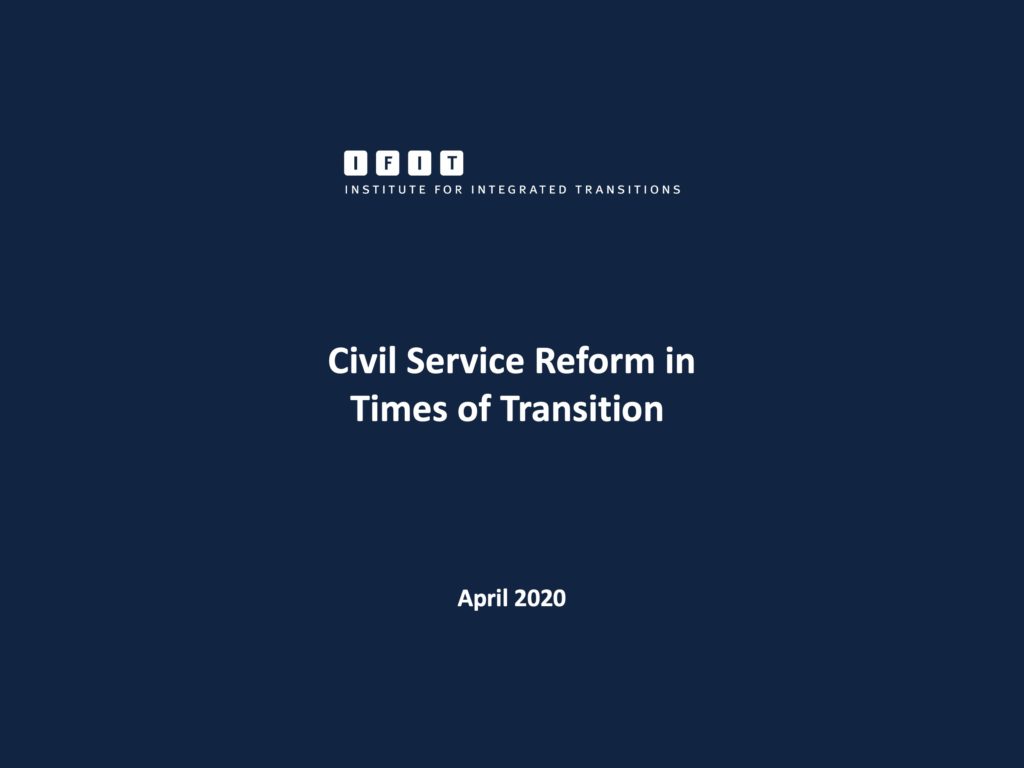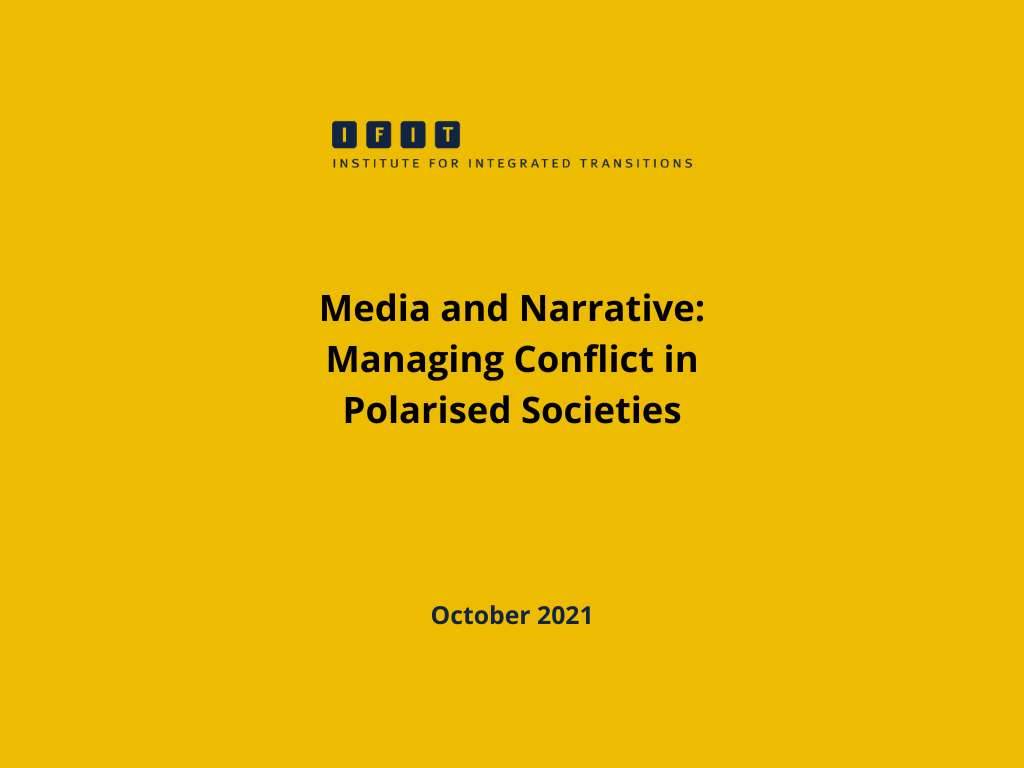Language: English
This IFIT discussion paper is part of a larger project on the negotiation and treatment of economic crimes as part of a comprehensive conflict prevention and resolution strategy.
Political amnesty for atrocity crimes is a common expectation in negotiations with warlords, dictators, military commanders, paramilitary chiefs, rebel leaders and others, because it offers desirable legal security at the national level. Yet, political amnesty only goes so far. It does not provide the legal protection these figures often want for illicit assets or businesses they may control. As such, the prospect of a negotiated peace deal or political transition risks exposing themselves to personal disgrace, wealth destruction, jail time and an adverse impact on the lives of family members.
With such considerations in mind, this IFIT discussion paper explores the novel prospect of applying techniques and lessons derived from the global use of conditional tax amnesties to the context and end-goals of a peace negotiation. It examines the basic concept of tax amnesties and relevant trends and data from their global use, before proposing ways to apply tax amnesty techniques that might generate better conditions for inducing, reaching, and implementing negotiated peace deals and political settlements.
The DOI registration ID for this publication is: https://doi.org/10.5281/zenodo.10474332
You may also be interested in
Transitional justice is a well-known area of theory and practice, but rarely are its central teachings applied as part of a negotiated conflict resolution strategy vis-à-vis “violent extremist” or jihadist groups. This new IFIT publication encompasses three original case studies on the issue.
The case studies cover: 1) peace talks between the the Ugandan government and the Lord’s Resistance Army (LRA); 2) pre-2011 negotiations between the regime of Muammar Gaddafi and the Libyan Islamic Fighting Group (LIFG); and 3) post-2001 transitional justice and peace efforts in Afghanistan in relation to the conflict with the Taliban.
Our research on “violent extremism” and transitional justice also involved the development of an original policy framework that draws on these three cases as well as earlier research published in partnership with UNU-CPR.
Overall, this research underscores why negotiation cannot be discounted as an option with “violent extremist” groups, and how creative applications of transitional justice have the potential to make any negotiated deal not only more achievable, but also more legitimate.
The DOI registration ID for this publication is: https://doi.org/10.5281/zenodo.10490176
After more than 50 years of armed conflict, the government of Colombia and the Fuerzas Armadas Revolucionarias de Colombia–Ejército del Pueblo (FARC-EP) signed a peace agreement in Havana in 2016, enabling the FARC-EP’s transition to legality and mainstream politics. During the talks, the parties formed a Technical Sub-Commission to work out the conditions for the FARC-EP to lay down its weapons and reincorporate its members into civilian life. Ultimately, 13,016 combatants (91% of registered FARC-EP members) demobilised and 8,994 weapons were collected, in addition to thousands of rounds of ammunition, explosives, mines and other munitions.
Based on the insights of insiders to the process, this brief paper highlights practice-relevant lessons and innovations in DDR (disarmament, demobilisation and reintegration) that emerged in the Havana peace talks and during the implementation phase.
The DOI registration ID for this publication is: https://doi.org/10.5281/zenodo.10474344
You may also be interested in
This discussion paper is part of a larger project developed by IFIT’s Law and Peace Practice Group on whether and how to negotiate amnesty and accountability questions with unconventional armed actors, including violent organised crime groups such as mafia, gang networks and drug cartels.
The paper draws from original IFIT first-person interviews with negotiators, with a focus on choices made in diverse cases from Latin America and the Caribbean. Among the paper’s findings are that negotiations with organised crime groups 1) tend toward pragmatic and limited goals, not abstract and transformational ones; 2) replicate most process design choices, internal dynamics and policy dilemmas associated with more classical peace talks involving politically-motivated militant groups; 3) arise more often out of necessity and lack of deterrence capacity than political or moral preference; and 4) tend to operate secretly and informally in light of expected public opprobrium.
The DOI registration ID for this publication is: https://doi.org/10.5281/zenodo.10474356
You may also be interested in
IFIT’s Syria Resource Group (SRG) has developed and disseminated a policy framework to help realise more just and realistic parameters for international assistance in Syria. Drawing on its recommendations, the SRG holds dialogues with donors and policymakers, seeking to encourage aid practices that create conditions for sustainable peace rather than entrenching the conflict.
The framework suggests that instead of conditioning future international assistance on a political solution to the conflict, the international community should apply a human rights-based conditionality to all forms of assistance, beyond traditional humanitarian action.
The framework is highly operational and outlines a realistic and comprehensive set of inter-connected principles, namely: avoiding the use of compromised channels of assistance; working incrementally on a small and local level; using trusted Syrian intermediaries; establishing effective monitoring mechanisms; and reactivating the role of trusted private sector actors.
The DOI registration ID for this publication is: https://doi.org/10.5281/zenodo.12529936
This publication offers practical guidance for achieving an incremental approach to durable civil service reform.
Many countries grappling with the legacy of conflict or authoritarianism do not have effective civil services. However, political transitions present an opportunity to tackle the costs of a dysfunctional civil service and achieve the benefits of reform.
Drawing on lessons learned from recent civil service efforts across the globe – from Albania to Nigeria, Afghanistan to Guinea – this briefing outlines nine steps for achieving a gradual and tailored approach to civil service reform, one that is underpinned by a political strategy funded through the national budget, and led by an independent reform unit.
The DOI registration ID for this publication is: https://doi.org/10.5281/zenodo.10474376
You may also be interested in
In a special edition of Peace Science Digest, IFIT experts examine the critical role of ‘go-between’ peacebuilders and their influence on the Institute’s ‘brain trust’ model.
in a new section called Research to Action, IFIT experts describe how academic theory informed the Institute’s model of national brain trusts comprised of ‘go-between’ peace leaders who occupy multiple spaces, belong to multiple constituencies, and share ideas and information across them. In the article, we argue that these often overlooked leaders play a vital role as educators, ethical exemplars, and bridging agents in contexts of negotiation and transition.
You may also be interested in
This IFIT publication argues that communications and narrative must occupy a much more central part of the vision of transitional justice.
For too long, war crimes tribunals and truth commissions have tried to tell too much of the storyline of mass abuse on their own, disconnected from a larger national conversation and societal narrative that seek to re-imagine a different future in the aftermath of conflict or authoritarian rule. Some of the most powerful voices shaping such narratives – media, public intellectuals and artists – have been treated as just one more type of stakeholder, rather than as distinctive protagonists in creating the possibility of transformative results.
The publication asserts that transitional justice bodies should abandon the ‘our work speaks for itself’ philosophy that has predominated during the last 20 years. Instead, they should proactively insert themselves in the contest of creating discourse, by building productive relations with influential news and social media, and by organising and galvanising constituencies with a deep stake in the process of forging a new national narrative.
The DOI registration ID for this publication is: https://doi.org/10.5281/zenodo.10474409
You may also be interested in
This IFIT essay aims to provoke an overdue discussion in the mediation and human rights fields on the benefits of adopting a less ideological approach to balancing peace and justice.
The publication demonstrates that flexible approaches to justice, particularly as part of negotiated transitions out of armed conflict, have received increased recognition in international law and policy in recent years. Drawing on state practice and policy, the publication explains how carefully designed legal leniency measures can play an important role in helping societies to move beyond violent pasts; and how negotiation techniques and process design can take advantage of the flexibility international law allows in order to balance peace and justice.
The ideas expressed in this publication are informed by the experience of the members of IFIT’s Law and Peace Practice Group, who have had direct involvement in the negotiation of amnesty and accountability issues in over 20 countries.
The DOI registration ID for this publication is: https://doi.org/10.2139/ssrn.3842933
You may also be interested in
This publication examines the various ways local entrepreneurs can contribute to peace and the conditions that need to be established for them to do so.
Although peacebuilders seek out creative ways to build social cohesion, reform institutions, and change political incentives in fragile contexts, they rarely consider local entrepreneurs as possible entry points for change. This is despite the fact that entrepreneurs can – and do – substantially contribute to all these goals as part of their day-to-day activities.
This IFIT publication provides original analysis, case studies and a set of practical recommendations on how to leverage the potential of entrepreneurs for peacebuilding. It is premised on the idea that only inside-out change can bring sustainable peace to the most difficult contexts, and that entrepreneurs offer a uniquely scalable mechanism to drive such change from within.
The DOI registration ID for this publication is: https://doi.org/10.5281/zenodo.10475148
You may also be interested in
